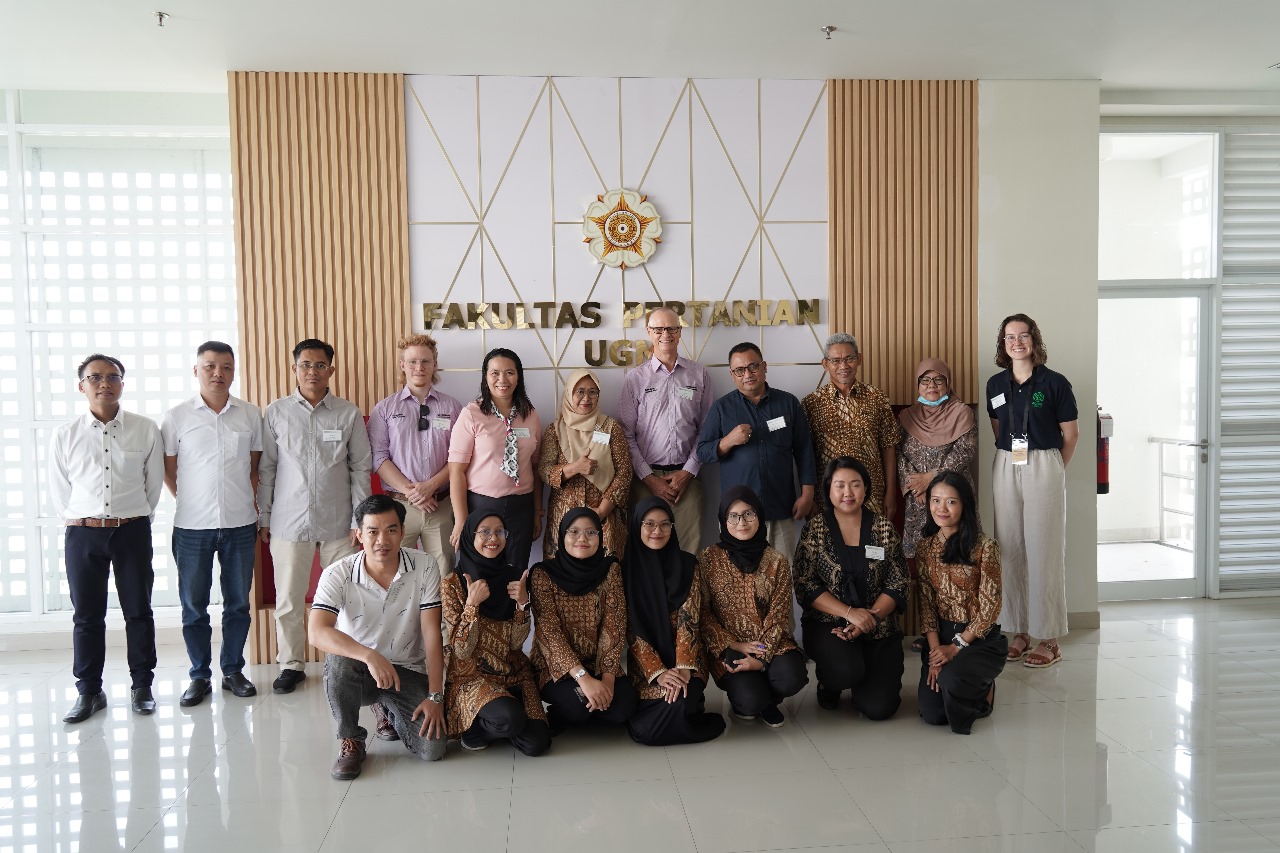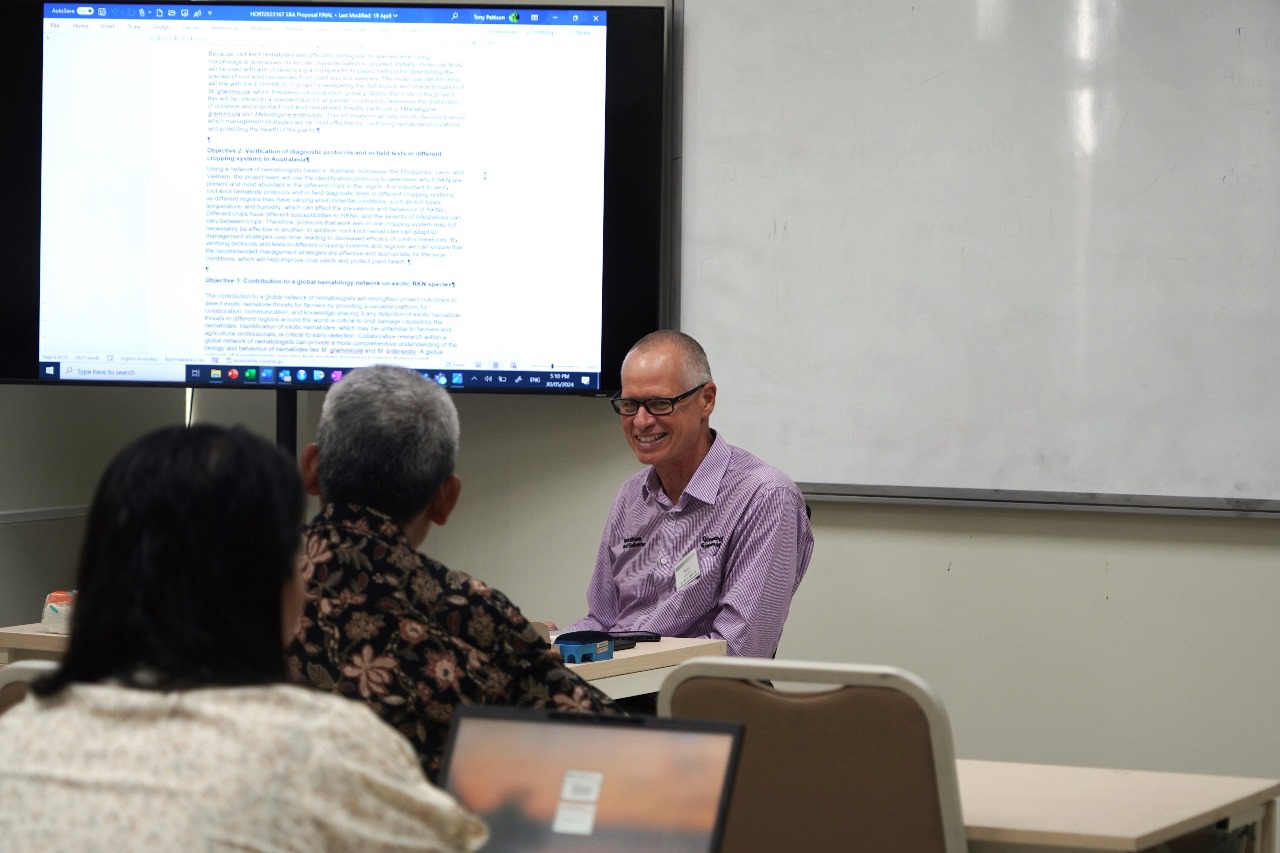
For the first time, Faculty of Agriculture UGM and Australian Centre for International Agricultural Research (ACIAR) conducted collaborative study focusing on nematodes. This was stated by Prof. Dr. Ir. Siwi Indarti, M.P., Professor in Agricultural Nematology, as the leader of the research team.
“After years of partnership between Faculty of Agriculture UGM and ACIAR in various fields, the study on nematodes is carried out for the first time. We believe that nematodes have a significant impact on decreasing agricultural crop production, so focusing of our research project which related to accurate and precise identification can make disease management becomes more effective to prevent transmission by nematodes to other areas,” explained Prof. Siwi.
One of the agendas of the research project was the root-knot nematode identification workshop which took place on Tuesday-Thursday, 27-30 May 2024, at Faculty of Agriculture UGM. In this agenda, several countries involved in the research project also participated, such as delegations from Laos, Vietnam, Philippines, and Indonesia. The participants showed high enthusiasm to learn from each other and share knowledge as well as experience in identifying root-knot nematode (Meloidogyne spp.).
Senior principal nematologist from Department of Agriculture and Fisheries of the Queensland Government, Australia, Dr. Anthony Barry Pattison, attended the workshop and explained that the field of nematology is a field of science that is still developing with many challenges in it. Hence, the workshop became an effort to disseminate knowledge and upskill all researchers involved in identifying root-knot nematodes using different techniques.

“This workshop aims to upskill all participants in applying traditional morphological technique and molecular technique to identify root-knot nematodes,” Tony explained.
He hoped that through the workshop activities, researchers from each country will be able to carry out nematode identification techniques in their home countries and have a better understanding of the nematodes. According to him, these ones will also have an impact on increasing mutual awareness related to food security.
Dean of Faculty of Agriculture UGM, Ir. Jaka Widada, M.P., Ph.D., who delivered an opening remark of the workshop appreciated this activity.
“Prof. Siwi is an expert in the field of nematodes who is very eligible to share her knowledge at this event. Her latest research involving artificial intelligent to identify the distribution of nematodes is one of the advances in research findings that can be shared to the participants at this event,” said the Dean.
Partnership between Faculty of Agriculture UGM, ACIAR as the financial support partner, and the Queensland Government, was a tangible manifestation of the efforts of all parties in achieving SDGs, including SDG 2: Zero Hunger, SDG 12: Responsible Consumption and Production, and SDG 17: Partnerships for the Goals.
Author: Hanita Athasari Zain
Translator: Sha
Editor: Desi Utami
Photo: Media Faperta

Thank you for more information